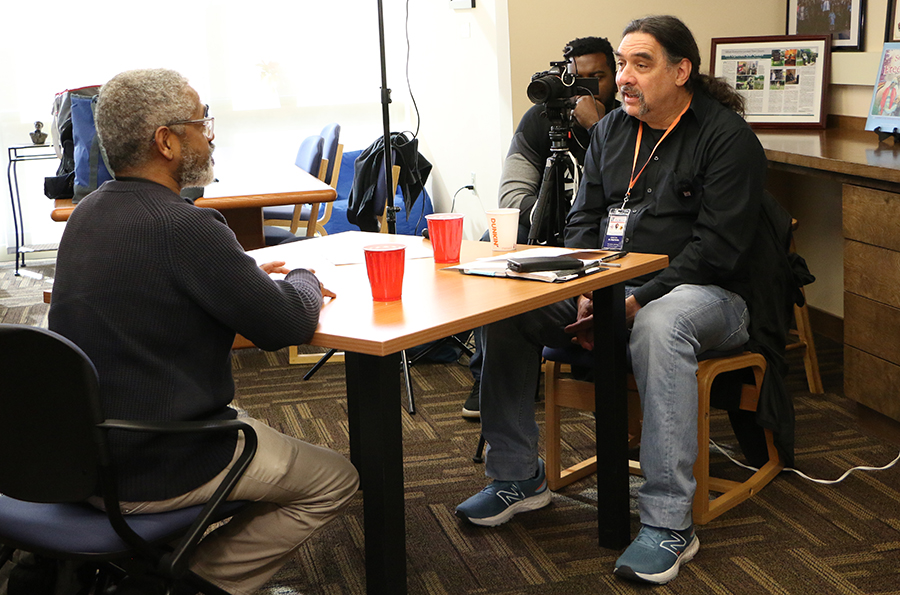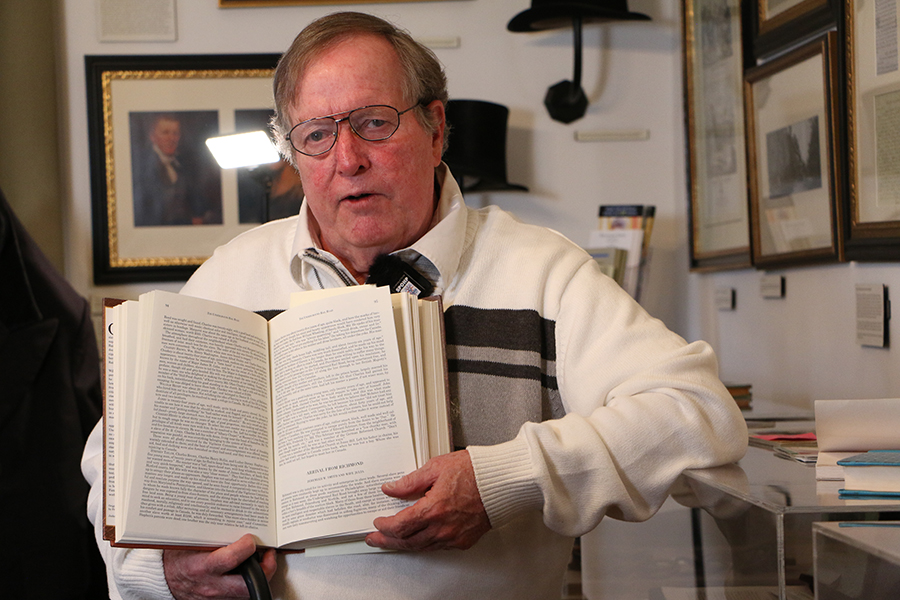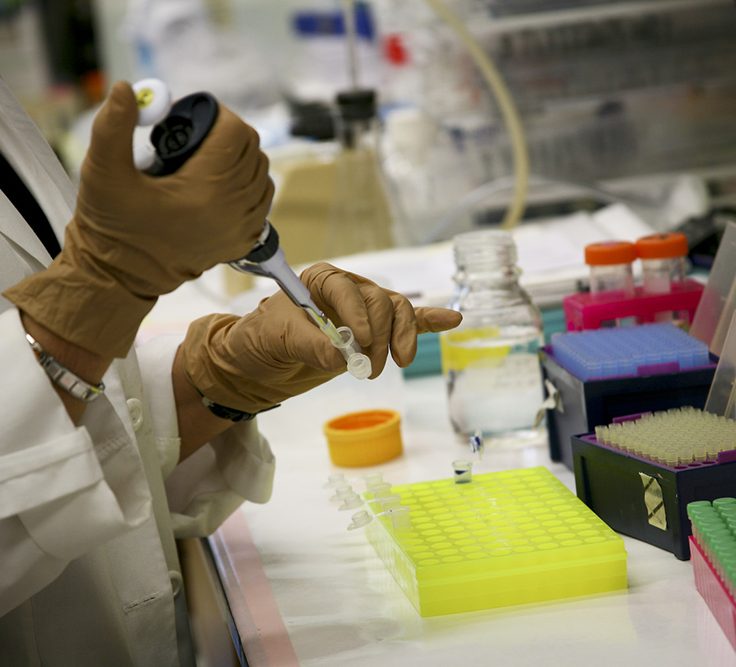
Anthony Cohen, left, a descendent of freedom seeker Patrick Sneed, recounts a family history to Paul Ortiz, director of the Samuel Proctor Oral History Program at UF, as Donovan Carter records it on video during a recent session at Arlington Cemetery in Drexel Hill, Pennsylvania.
Sharing the Underground Railroad’s Oral Histories
Samuel Proctor Oral History Program begins work highlighting civil rights struggle during slavery era with support from National Park Service
The Underground Railroad, which helped people escape slavery to freedom, necessarily operated in secrecy until the end of the Civil War. Now a grant from the National Park Service will support the Samuel Proctor Oral History Program at the University of Florida in highlighting the history of this pivotal social movement.
The $350,000 grant through the U.S. Department of the Interior will allow the program in the College of Liberal Arts and Sciences to gather, preserve, transcribe and promote digital video and audio recordings for use in museums, K-12 classrooms and documentaries.
The Network to Freedom Underground Railroad Oral History Project is a collaborative research project designed to shed light on one of the most important and least-understood social movements in American history.
“Conductors and freedom seekers on the Underground Railroad struggled against the power of Congress, the Supreme Court, and the executive branch for generations and in doing so left an unrivaled record of democratic striving and intersectional coalition building uniting African American, white, and Hispanic antislavery activists against tyranny,” said Paul Ortiz, director of the Samuel Proctor Oral History Program. “This is an incredible opportunity for University of Florida undergraduates, graduate students, and staff to learn the legacies of the most important grassroots democratic institution in American history.”

Under the guidance of the National Park Service and the National Underground Railroad Network to Freedom, UF staff and students in the Samuel Proctor Oral History Program will record the oral and family traditions of Underground Railroad descendants and representatives.
The Underground Railroad oral histories will be jointly housed at the National Park Service and the University of Florida Digital Collections at George A. Smathers Libraries.
“I’ve always heard about the Underground Railroad and have had a loose understanding of how allyship made it possible,” said Donovan Carter, who earned his master’s in Latin American Studies at UF in 2023 while part of the Oral History Program research team. “Being a part of this project has shown me much more of the teamwork and bravery required to escape slavery. I never would have imagined the risks both freedom seekers and conductors took to escape the horrors of slavery. I believe these multiracial alliances could serve as great examples for antiracist activists today.”
“This project has helped Black American history come alive for me in ways I never imagined,” said Angelica McGee, a graduate student in Gender, Sexuality, and Women’s Studies. “From learning about the unbelievable life of former slave turned Captain Robert Smalls to rewatching the film Glory and finding renewed meaning and understanding of the grandiosity of what my ancestors and their allies went through, this project has changed the way that I look at the world and the progress that has been made and remains to be seen in civil rights activism.”
The Park Service’s Network to Freedom celebrates its 25 anniversary this year, with more than 700 locations in 39 states, Washington, D.C. and the U.S. Virgin Islands. The organization serves to honor, preserve, and promote the history of resistance to enslavement through escape and flight. Through this mission, the network helps advance the idea that all people deserve the right to freedom from oppression.
For more information, please contact the Diane Miller, National Park Service, Diane_Miller@nps.gov, 443-477-4476; or the Samuel Proctor Oral History Program at 352-392-7168.


